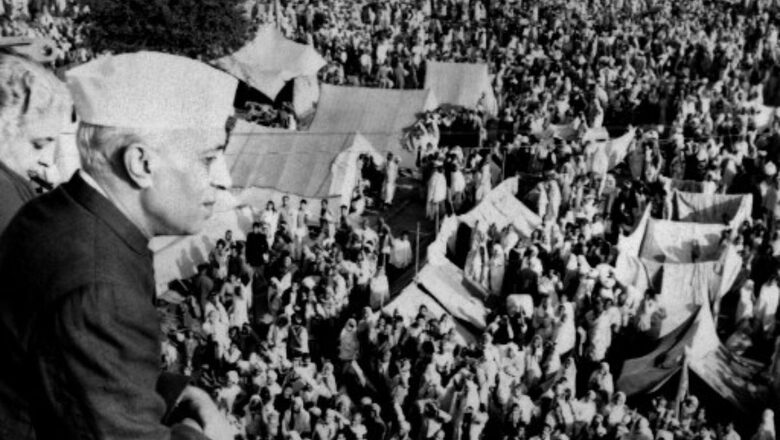
views
The decision by the Opposition alliance led by Congress to boycott TV shows of certain news anchors has reignited the debate about the ‘freedom of press’. It is important to understand that the foundations for restricting the freedom of press were laid down quite early in 1950s when the first Prime Minister of India, Pandit Jawaharlal Nehru, who is a role model for Congress, brought the first constitutional amendment. During the debate, Nehru expressed his opinion about the press. His remarks not only make an interesting reading, but they also set up a historical context regarding the way ‘freedom of press’ has been handled during Congress regimes.
Nehru’s opinion about press
During the debate on the first Constitutional amendment in Parliament, Nehru said in May 1951: “It has become a matter of great distress to me to see from day to day some of these news sheets which are full of vulgarity and indecency and falsehood, day after day, not injuring me or this House, so much, but poisoning the mind of the younger generation, degrading their mental integrity and moral standards. It is not for me a political problem but a moral problem. How are we to save our younger generation from this progressive degradation and the progressive poisoning of their mind and spirit?”
The sentiments echoed by the present-day Congress leaders regarding their critics in the media have an interesting similarity with Nehru’s views. During this debate Nehru accused a section of media that they were spreading ‘fake news’.
Nehru said, “From the way untruth is bandied about and falsehood thrown about it has become quite impossible to distinguish what is true and what is false. Imagine our younger generation in schools and colleges reading this; imagine I ask this house, our soldiers and our sailors, and our airmen reading this from day to day. What kind of impression do they carry? When there is no sense of responsibility and obligation, what are we to do? How are we to stop this corroding influence?”
Nehru moved the Constitution (First Amendment) Act, 1951, on 10 May 1951 and it was enacted by Parliament on 18 June 1951. This amendment restricted the freedom of expression in India. Nehru went ahead despite stiff resistance from within his party as well as various sections of the society including the Press. Bharatiya Jana Sangh(BJS) led by Dr Syama Prasad Mookerji opposed this amendment fiercely. The verbal duels between Mookerji and Nehru were reported extensively in Indian media. Several legal luminaries also opposed this amendment. But Nehru went ahead and amended Article 19 of the Constitution.
Indira Gandhi’s crackdown on press
Veteran journalist Coomi Kapoor has given a vivid first-hand account of how the press was muzzled by Indira Gandhi, another role model for the Congress leadership during the Emergency (1975-77) period. In her memoir, The Emergency: A personal history, Kapoor recalled, “Immediately after the Emergency was declared, electricity to all the newspapers in Delhi was cut so that editions could not be brought out until the censorship apparatus was well in place. Claiming that some newspapers were misusing their rights by indulging in irresponsible comments and misleading the public by giving wrong news the censors promptly warned editors about leaving editorial columns blank or using quotations from great works of literature or by national leaders like Mahatma Gandhi, Rabindranath Tagore, Jawaharlal Nehru, and so on. Even quotes from the Bhagavad Gita were proscribed. It was the National Herald founded by Jawaharlal Nehru, which supported the emergency throughout, and cautiously removed the quote ‘Freedom is in peril, defended with all you might’ from its masthead.”
Rajiv Gandhi’s attempts to tame press
When Rajiv Gandhi faced severe media criticism as Prime Minister of the country in context of the ‘Bofors Scandal,’ he decided to introduce the defamation bill. It was a draconian bill aimed at taming the press which was publishing one after another expose revealing deep corruption in the Rajiv Gandhi government. Though the move received severe flak from all quarters of the society, Gandhi went ahead with the bill and said in a press statement on September 4, 1988, “We will like them (the press) to read the bill. We are totally convinced that the bill is needed. I am myself convinced that we are proceeding on the right line.” The bill was passed in Lok Sabha but it had to be withdrawn due to unprecedented public pressure.
Congress manifesto on regulating media
Interestingly, the Congress manifesto available on its official website talks about ‘self-regulation’ as the best way to correct misuse or abuse of media. In the section titled ‘Media and Freedom of Media’, it says, “In recent times, sections of the media have abused or surrendered their freedom. Nevertheless, we believe that self-regulation is the best way to correct the abuse of media freedom. Congress promises to amend the Press Council of India Act, 1978 to strengthen the system of self-regulation, protect the freedom of journalists, uphold editorial independence and guard against government interference.”
The writer, an author and columnist has written several books. He tweets @ArunAnandLive. Views expressed in the above piece are personal and solely that of the author. They do not necessarily reflect News18’s views.











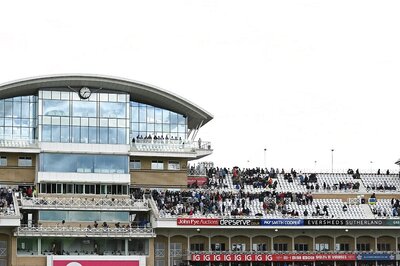


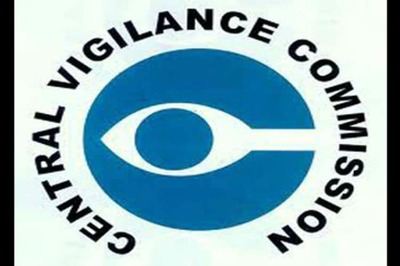
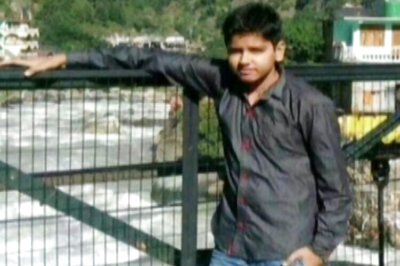



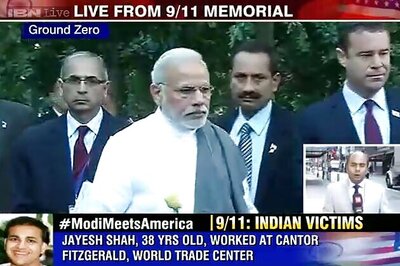
Comments
0 comment